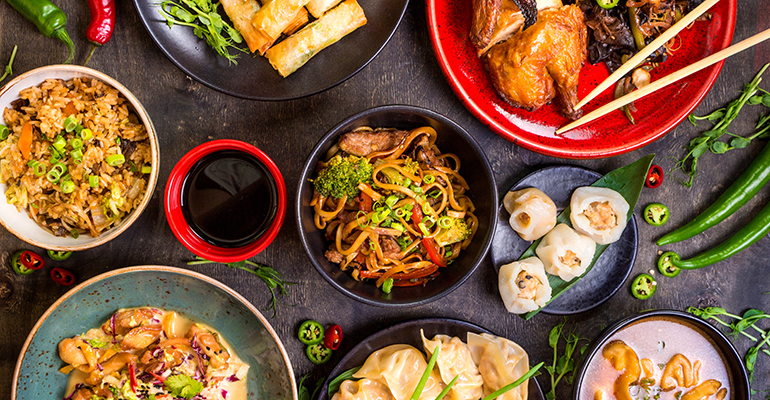News
Chinese food brand wants to give customers ‘the full experience’
16 Dec 2022
Food brand Xiao Chi Jie is revamping Chinese cuisine for the modern American consumer. The Washington-based company sells regional Chinese specialties like soup dumplings, noodle kits, and barbeque skewers direct-to-consumer in the US.
XCJ was founded in 2018 by married couple Jennifer Liao and Caleb Wang, who are both second generation Chinese Americans. They first opened their doors with a street food-style restaurant in the Seattle area, but had to pivot during the pandemic.

Once Covid-19 hit and foot traffic slowed, Wang and Liao began delivering their soup dumplings locally. But word of mouth spread on social media, and demand for their products quickly grew.
The brand went viral on TikTok and WeChat, with customers praising the products for their taste and quality as traditional Chinese food. Even though Chinese is a popular cuisine in the US, its dishes are typically “Americanised” and not considered authentic.
"Despite its prevalence in the US, Chinese cuisine is woefully underrepresented ー especially in the [consumer packaged goods] CPG space," Liao said.
XCJ now makes its food to be sold frozen and direct-to-consumer across the country, while still managing a restaurant in Washington state. And more than two years on from the start of the pandemic, investors are taking notice of XCJ’s efforts.
In October, the food brand raised $10 million in its Series A funding round led by Imaginary Ventures. Additional investors include actor Simu Liu, Goldhouse Ventures and Hyphen Capital, among others.
Chinese dishes aren’t a novelty in the American frozen food section, but XCJ’s fans all echo a similar refrain. Wang and Liao cracked the code for freezing their soup dumplings, a notoriously tricky food. They make the dumplings fresh at their restaurant every day and use liquid nitrogen for a slow freezing process, which helps maintain the integrity of the delicate dumpling.
In addition to the brand’s original soup dumplings, made with pork, shrimp and chicken, XCJ sells lamb, chicken and beef skewers, jasmine green tea and rose lychee ice cream, a variety of sauces, and noodles, its latest launch.
The frozen noodles come in different regional styles, and XCJ offers both a pork and vegan option. The vegan noodles are made with plant-based Impossible Pork in collaboration with Impossible Foods. Customers can also order “The Full XCJ Experience” to try a bit of everything from the brand. The variety pack comes with soup dumplings, a noodle kit, a trio of sauces, and a bamboo steamer.
The company plans to rebrand in 2023 to “a new name that can continue to grow with us as we invite more people to learn about our food and culture," Liao said. These plans will likely include a move into retail with smaller pack sizes, according to reporting in Forbes.
Wang and Liao first launched XCJ as a small project, focusing solely on their brick-and-mortar restaurant. But its profound success as a direct-to-consumer brand made it an unexpected personal and professional journey for the pair.
“For both of us, launching XCJ was our way of connecting with our family’s history and serves as a reminder that the Chinese identity is constantly evolving,” Wang said in a statement on the XCJ website.
“It is on us and our communities to create new, multidimensional representations of what it means to be our own brand of Asian-American and create a cuisine that deserves a place in the American food ecosystem.”
